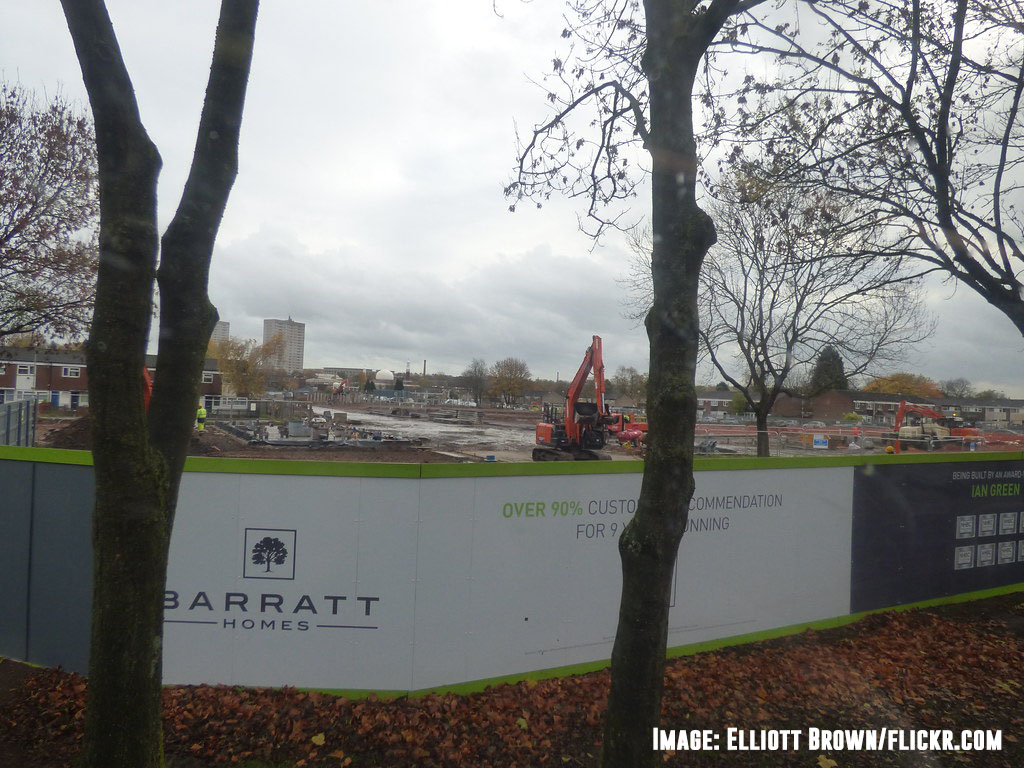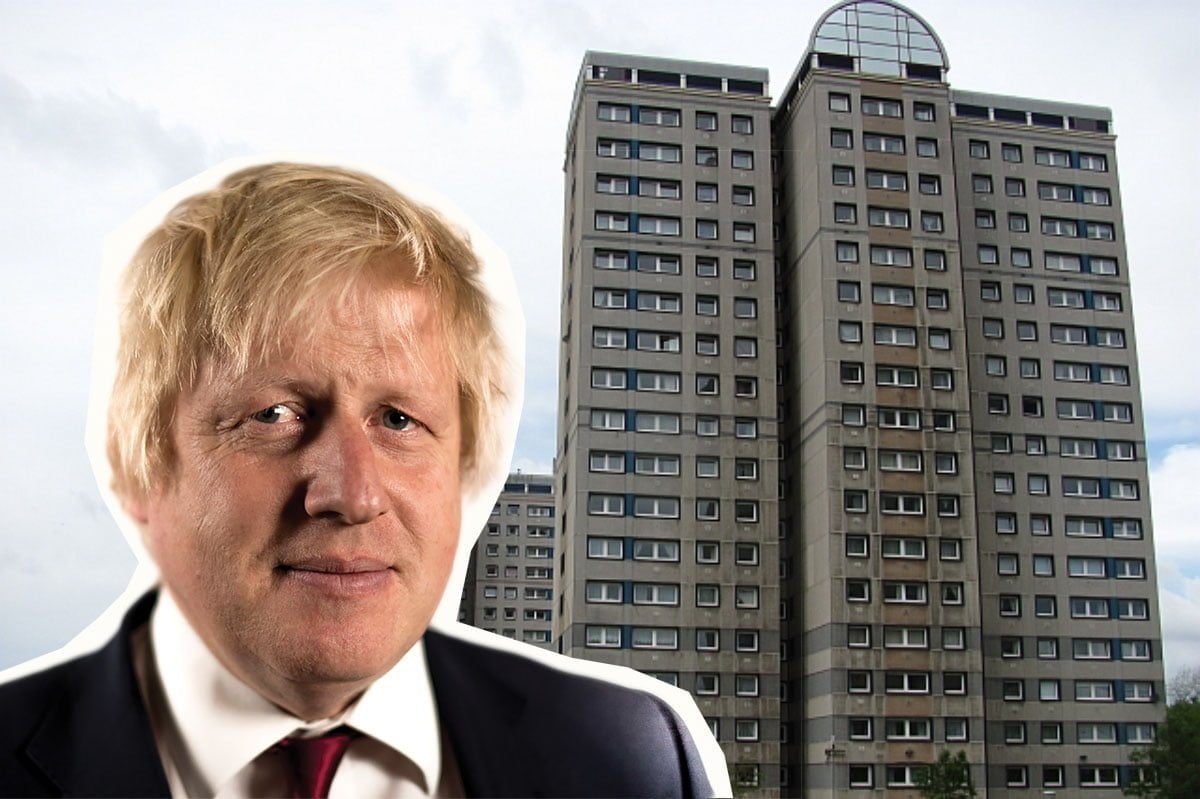Outrageous proposals to ‘reform’ the planning system will give a free reign to property developers, whilst removing any accountability to local communities. The housing crisis is not the fault of the planning system, but the profit system.
The Tory government recently announced plans to virtually abolish the planning system and local authority oversight, claiming that this will ‘fix’ the housing crisis.
Under the proposed changes, all land will be designated in categories, with the majority no longer requiring planning permission for most development. Local authorities will be required to agree to land being used for development, without knowledge of what type and standard of development will be built.
It is also proposed that the ability of local authorities to negotiate the number of affordable houses within a development should be removed. Instead, a fixed number will be set by the government. This will effectively lock affordable housing numbers at already pitifully low numbers.
The housing crisis is a genuine reality for the majority in society. But the idea that it is the fault of the planning system does not stand up to the slightest scrutiny. We must point the finger at the real culprit: capitalism.
Housing crisis
The housing charity Shelter estimates that, as of the end of last year, there were 280,000 people homeless in the UK. Another 220,000 are threatened with homelessness.
Being #homeless leaves a lasting imprint of trauma, yet 280,000 people in England are without a home this Christmas. And worryingly, many more people are only days away from joining them. pic.twitter.com/8SvHqAbLbH
— Shelter (@Shelter) December 18, 2019
Shelter themselves, however, recognise that these are likely to be a substantial underestimate, as much homelessness is ‘hidden’. It is also estimated that millions more are living in substandard or overcrowded housing.
The housing crisis is also officially getting worse. The government’s own statistics, for example, show that only half of the homes needed to meet new demand are being built each year.
Planning system
Figures from the Local Government Association (LGA) show that 9 out of 10 applications for planning permission are approved. Many of those that are not approved are amended and then resubmitted, with only a tiny proportion being appealed.
It is also very rare for a development to be rejected ‘on principle’. The most common issues raised include: a lack of transport infrastructure; not enough affordable housing; and design issues which mean that a development will not ‘blend in’ with the rest of the area.
There is not, therefore, a significant issue with the planning stage; the crisis must be caused elsewhere.
The answer is revealed by other LGA statistics. These show that half of all developments granted planning permission over the last decade have not yet been built.
Big developers
 Although there are around 10,000 house builders in the UK, the sector is dominated by a handful of huge developers. The biggest 10 were responsible for almost half of all houses built last year. And the biggest four – Barratt, Persimmon, Taylor Wimpey and Bellway – account for over a third.
Although there are around 10,000 house builders in the UK, the sector is dominated by a handful of huge developers. The biggest 10 were responsible for almost half of all houses built last year. And the biggest four – Barratt, Persimmon, Taylor Wimpey and Bellway – account for over a third.
These monopolies hold a dominant position and make obscene profits. The ‘big four’ made a combined £3.5 billion profit last year.
According to the top ten developers’ own stock market reports, they currently own enough land to build around 600,000 homes. Half of this land already has planning permission.
This land would meet all demand for the next two years by the government’s estimates. At current building rates, it is enough to supply these developers for the next eight years.
The reason why developers are ‘land banking’ and spreading out development is to restrict the housing supply. This ensures that prices remain artificially high – and that their profits continue to grow.
Owning the land also means that other developers will not be able to use it. And this also prevents anyone else challenging the big developers.
But you don’t have to just take our word for it. These are actually the conclusions reached by then-Tory MP Oliver Letwin, in a report commissioned by Theresa May’s government on the issue of land banking!
Substandard housing
The Royal Institute of British Architects has suggested that “there’s every chance [the proposals] could also lead to the creation of the next generation of slum housing”. Research on similar ‘experiments’ suggest that such an outcome is likely.
A report that the government itself commissioned on planning deregulation was extremely critical of the consequences. Since 2013, developers have been able to convert offices to flats without requiring planning permission. But the report showed that this change has sparked a race to the bottom.
Only 20% of the flats created under these rights met the recommendations for minimum space. This compares to over 70% for housing needing planning permission. The quality of the conversions was often poor. The developments were often isolated, with few or no transport links. And the size of the properties meant that residents were unable to enjoy an adequate social life.
Ending the crisis
It is clear that these latest Tory planning reforms are nothing less than a gift to developers, to help them cut corners and boost their profits even further. And this should come as no surprise. After all, private property developers were responsible for a quarter of all donations to the Tory Party last year.
The truth is that we have large amounts of land ready to be developed. But this sits unused in order to ensure that prices – and profits – don’t drop. Hundreds of thousands of properties, meanwhile, also sit idle and empty, used as vehicles for speculation by wealthy investors.
At the same time, ordinary people are desperately in need of housing. This sorry state of affairs is a sick joke.
The resources, skills, and workforce exist to end the housing crisis. The only thing lacking is control. That is why we need to nationalise the big property developers, construction companies, and banks, under workers’ control and management.
Alongside this, we need to nationalise the land, and take the major management companies and housing associations into public ownership.
On this basis, as part of a socialist economic plan, we could build housing developments based on need and sustainability. We could then easily undertake a mass programme of social housing construction, and quickly provide decent housing for all.






